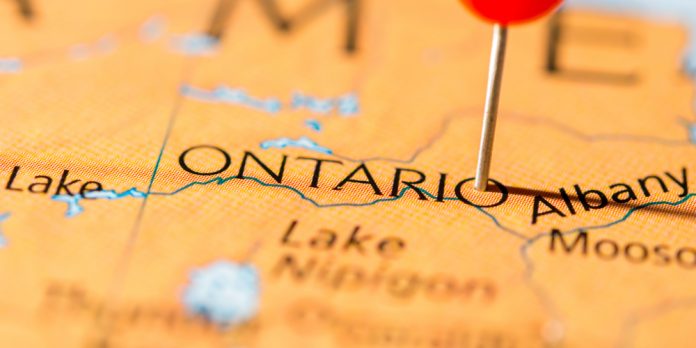Martin Lycka – SVP for American Regulatory Affairs and Responsible Gambling at Entain – examines Ontario’s journey towards becoming the first Canadian province to allow online gambling.
The Heartland Province of Ontario has given the world seventeen Stanley Cup champions since 1915; only trailing the neighboring La Belle Province of Quebec in this respect. I will not provide the splits in terms of overall wins here out of respect to all my friends in Ontario. It is however fair to say that Ontario is edging ever close to scoring a decisive win in the Stanley Cup of online gambling regulation, having officially launched its regulatory process in November 2020.
Ontario has thus embarked on a journey to become the first Canadian province to allow online gambling, or if you will, igaming operators, to take out local licenses and enter the soon to be regulated market. To use Ontario’s own parlance, these developments will have turned it into the Province of Gambling Opportunity. We are currently in the third period of the initial regulatory game and this is the match report so far:
The match started under the supervision of referee Phillips, who was, in a rather unusual move for a hockey game, replaced by referee Bethenfalvy already throughout the first period. The pace of the match has however not been affected by the change. The fierce first period saw the appointment of a special advisor to the match officials, a brilliant import from Denmark with plenty of previous game experience, whose role has been to help the officials design the boards of the Ontario gambling hockey rink that will allow operators to smoothly skate in.
The boards took shape in the form of an initial policy document that set out the basic rules that will apply to the Ontario game going forward. The officials made it clear that the rules will allow for all interested teams to join the tournament, without there being a cap on their number; of course, as long as in the spirit of the most sportsmanlike conduct they commit to honoring the rules. The initial set of rules also stipulated that all types of plays will be welcome in the Province of Ontario, with single sports betting at that point still being subject to the outcome of a parallelly played federal tournament in Ottawa.
Mindful of the financial impact the game will have had, the officials also pointed out that the fiscal rules and operators’ “salary” caps will be reasonable and in need to reflect the mechanics of the game. The questions that were left open throughout the first period were whether liquidity in form of foreign players can be pumped into the future tournament contestants or not and to what extent and if so how the game can be promoted in the public media and elsewhere.
If the first period was fierce the second was furious, mainly because the future teams, i.e. igaming operators, have been invited to get involved and share their views on the future rules of the game. The officials worked tirelessly to design a more detailed playbook that the teams will be required to abide by, to avoid regular trips to the penalty box.
The teams got an opportunity to review and comment upon the so-called Registrar’s Standards for Online Gambling – these standards, amongst others, provide for requirements applicable to the registration of the teams’ players and verification of their credentials, as well as for rules setting how teams may attract players using bonusing and how they may market their merchandise. The playbook also clearly follows the most recent trends in terms of protection of the players’ well-being, while being accompanied by other sets of guidelines that set out the technical as well as technological rules of the game, including Zamboni, I mean gaming server, setups. During the second period, all involved parties received the welcome news from Ottawa that the single sports wagering game has been won and the path is clear.
As this column is written, the game has entered its third period and despite having slowed down a fraction it remains relentless. The officials and the operator teams are in the throes of negotiating their contracts, subject to the framework outlined in the collective bargaining agreement created during the first two periods. The play has become much more meticulous and detail orientated, tackling issues, such as indemnities, teams’ contribution to the future league, i.e. the revenue share the teams will have received when licensed, as well as the still pending issue of international liquidity.
At the same time, the officials have launched the process that will ultimately lead to authorization of the operator teams to enter the igaming fray in the Ontario arena. It is not yet clear whether the third period will conclude the initial Ontario game or whether we will need to go into overtime to resolve some of the pending issues. In any case, by having plucked up the courage and blazing the trail for the other provinces Ontario is proving that it is a true place to grow, ready for igaming operators to discover.













